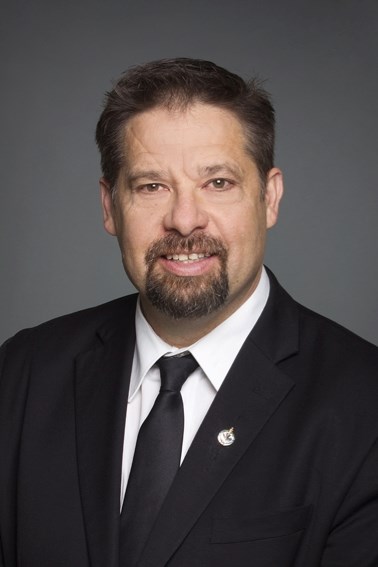The Liberal government's first federal budget is receiving mixed reviews across the board.
While implementing measures to help Canadians in the short term who have been hit by the drop in oil, a nearly $30 billion deficit has local officials concerned about the long term.
“It's undisciplined spending. We have to pay it back eventually and this budget will fail to boost the economic growth,” said Fort McMurray – Cold Lake MP David Yurdiga. “(The budget) addresses a lot of social issues but it doesn't get people back to work, especially in the resource sector. So that's very troubling.”
Tabled on March 22, Finance Minister Bill Morneau's budget focuses on the country's middle class. To help ease the burden on those in regions affected by the low oil and commodity prices, including the Fort McMurray – Cold Lake area, employment insurance (EI) will be extended by an extra five weeks. The government also committed to a bigger than expected cut in EI premiums next January.
To assist those in the northern-most part of the riding, the maximum daily northern residency deduction was increased to $22.
“There are some good things in the budget, but nothing really that's going to create employment in our riding, which is not good,” said Yurdiga. “Those EI benefits will run out. I think it's more important to create a climate where businesses invest and create employment so our economy prospers.”
In an attempt to get infrastructure construction moving ahead, Morneau announced in his budget the first phase of the Liberal's infrastructure plan will invest $11.9 billion in a projects from water and wastewater systems to affordable housing. Within the next decade, over $120 billion was committed to infrastructure.
“We're going to have to break down to see actually what Alberta's going to get as far as infrastructure money goes,” said Yurdiga. “We'll have to look forward to see what we can get for our community as far as infrastructure dollars, because there's nothing in the budget at all for the resource sector.”
Social programs for the middle class were a main focus in this year's federal budget.
Families with children in region will notice some changes stemming from the 2016 budget. To replace the universal child care benefit, the introduction of the new Canada Child Benefit will see families receive up to $6,400 a year per child under six-years-old and $5,400 for kids ages six to 18. That amount will start being cut back on household incomes over $30,000. Parents who used to take advantage of the federal children's arts and fitness tax credits will see that phased out by 2017.
For families with kids heading off to college, the education and textbook tax credits that students were once able to claim has been eliminated. However, the Canada Student Grant has been increased by 50 per cent to $3,000 for low-income and $1,200 for middle-income students.
“Our plan will recapture the hope and optimism for the future that existed in previous generations, and put it to work for the next. Real change is not just about today or tomorrow. It is about revitalizing the economy in the years and decades to come, so that it works for the middle class and helps those working hard to join it,” Morneau said in a statement.
Budget 2016 will also see unprecedented investments in First Nations, Inuit and Metis. In total, $8.4 billion over five years is focused towards education, infrastructure and skills training for Canada's Aboriginal communities.
While pleased to see the government's commitment in supporting education for Aboriginal children, Yurdiga was not impressed with the budget's outcome for another main sector of Cold Lake – the military.
Morneau explained in his budget speech that the federal government will be conducting an “open and transparent” process to create a new defence strategy. While the government committed to renewing the major equipment, including aging fleets of CF-18 fighter aircraft, they will be reallocating funding for large-scale capital projects from the 2016 to 2020/'21 period to future years.
“We want to ensure that when we send our military in harm's way, we want them to be equipped with the best equipment possible. That's very troubling when we see the government not willing to invest,” expressed Yurdiga.
When looking at the Fort McMurray – Cold Lake riding as a whole, Yurdiga said the Liberal's first federal budget will bring little relief for major issues residents are facing.
“None of the measures in the budget will do anything to help the natural resource sector get back on its feet. Other sectors like agriculture were ignored. There is no plan to get Albertans working again.”



